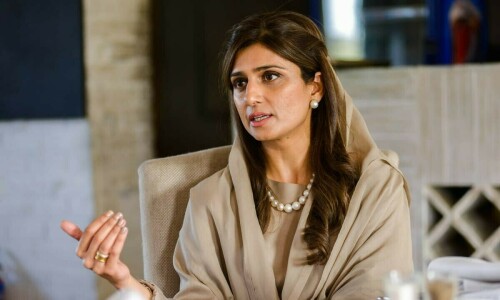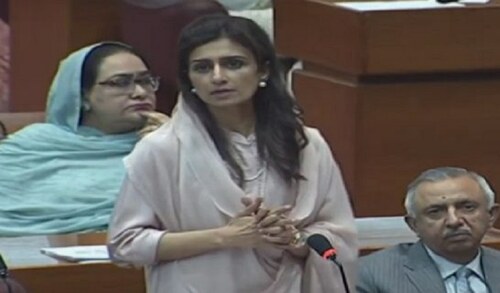WASHINGTON: The Biden administration has once again assured Islamabad that it does not want Pakistan to choose between the United States and China.
Minister of State for Foreign Affairs Hina Rabbani Khar said in a newspaper interview last month that Pakistan had enough problems of its own and did not want the added headache of a new Cold War between China and the US.
Asked to comment on the minister’s interview at a news briefing on Tuesday, US State Department spokesperson Mathew Miller endorsed the minister’s sentiment, saying: “No, the United States does not ask Pakistan or any other country to choose between the United States and China or to choose between the United States and any other country.”
The US-Pakistan relations, he added, were built on “our close people-to-people ties, and we will continue to seek ways to expand our partnership and economic ties.”
State Department says Washington will continue to seek ways to expand partnership with Islamabad
Since part of the question also touched upon Pakistan’s current economic situation, Mr Miller said: “Our economic cooperation with Pakistan reflects our vision for the region as one comprised of nations that are independent, strong, and prosperous.”
America’s relationships with those nations, he said, were “based on a spirit of respect and partnership.” Ms Khar’s interview was recorded before US President Joe Biden called his Chinese counterpart Xi Jinping a dictator at a political event in California late last month. The comment earned a swift and angry response from Beijing which said the remarks “seriously contradict basic facts, seriously violate diplomatic etiquette, and seriously infringe on China’s political dignity”.
As tensions between the US and China grew, political analysts in Washington warned that Mr Biden’s remarks, and Beijing’s response, would make it more difficult for countries like Pakistan to maintain ties with both China and the US.
Ms Khar warned that an all-out rupture between the US and China would present Pakistan with an unpalatably binary strategic choice. “We are highly threatened by this notion of splitting the world into two blocs. We are very concerned about this decoupling … anything that splits the world further,” she said. “We have a history of being in a close, collaborative mode with the US. We have no intention of leaving that,” she said. “Pakistan also has the reality of being in a close, collaborative mode with China, and until China suddenly came to everyone’s threat perception, that was always the case.”
Recently released classified documents show that Pakistan, and some other nations, have been quietly distancing themselves from the US on key issues like Ukraine.
Published in Dawn, July 13th, 2023
















































